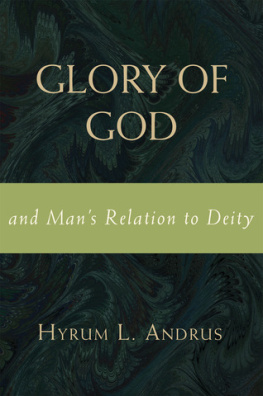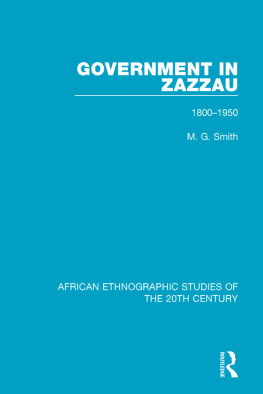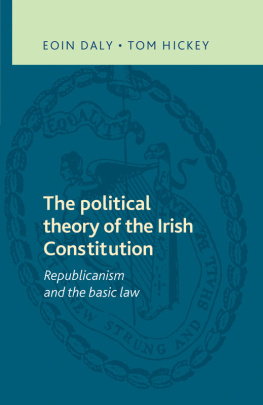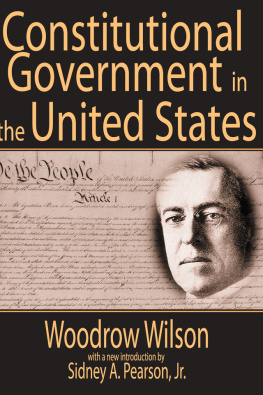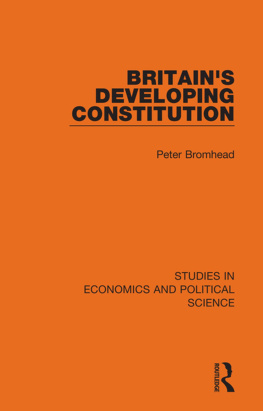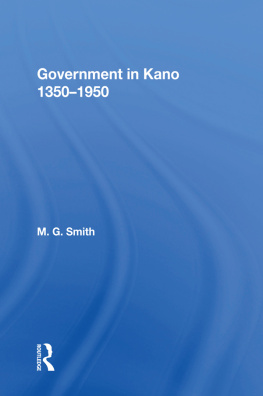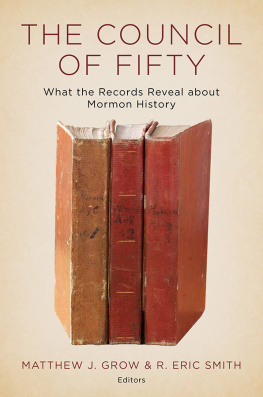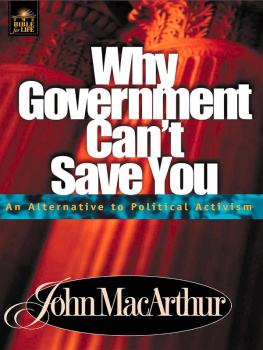Joseph Smith and World Government
Hyrum L. Andrus
1958 Deseret Book CompanyAll rights reserved. No part of this book may be reproduced in any form or by any means without permission in writing from the publisher, Deseret Book Company (permissions@deseretbook.com), P.O. Box 30178, Salt Lake City Utah 84130. This work is not an official publication of The Church of Jesus Christ of Latter-day Saints. The views expressed herein are the responsibility of the author and do not necessarily represent the position of the Church or of Deseret Book. Deseret Book is a registered trademark of Deseret Book Company.
PREFACE
For some time I have had a deep interest in the social, economic and political aspects of Joseph Smith's thought. That interest prompted me in large measure to organize my graduate studies at Brigham Young University and at Syracuse University around the Prophet and the historical picture of his day. Thus, my major academic interest has been in the religious, social, economic and political picture in America between the time of the founding of our Constitution and the American Civil War, and to study the rise and development of the Church in this historical background. My master's thesis and my doctoral dissertation were both written on the Prophet Joseph Smith and his effort to set the mold of a new socio-religious, economic and political system that would eventually rise to world-wide power and influence.
Since completing my doctoral studies in 1955, my interest in the above studies has continued. This volume is in large part the result of research since that time. It is, however, based in many ways upon my previous research and includes many of my former findings.
The material here presented is a part of a larger study I have had underway for several yearsthat of producing a work that will adequately define Joseph Smith's social, economic and political concepts in their religious setting, while placing the Prophet in context with the historical picture of his age. But because of the importance and nature of the information contained in the present volume, it seems proper to publish it at this time. I take full responsibility for the views herein set forth.
I wish to acknowledge the assistance of those who have aided me in my studies over the past years. They include the members of my graduate committee at Brigham Young University and at Syracuse University. Grateful acknowledgment is also made to the Church Historian's Office for important material that has gone into this volume; to Jacob Heinerman, of the Cottage Book Store, Provo, for assistance in locating pertinent information; and to my wife, parents, students and friends for the encouragement they have given to me along the way. I also wish to thank Dean B. Farnsworth and Soren F. Cox of the Brigham Young University faculty for checking the manuscript for grammatical errors and others of the faculty for reading parts of the manuscript and offering helpful suggestions.
THE AUTHOR
INTRODUCTION
This book is the first work published in modern times which sets forth the concept of the government of God which was revealed through Joseph Smith and shows the significance of that concept in the westward move of the Latter-day Saints from Illinois, and the colonization of the West under Brigham Young. It is also the first work written to show that Joseph Smith actually organized the nucleus of that divine political system on earth, in the form of the General Council or, as it was nicknamed, the Council of Fifty.
During the first half of the twentieth century the knowledge of the General Council was virtually lost to the world, and it was only after the publication of A Mormon Chronicle: The Diaries of John D. Lee, 1848-1876, in 1955, that substantial progress was made in bringing the knowledge of this political body to light in recent times. In the fall of 1955, J. Keith Melville and I were on the faculty of Ricks College, in Rexburg, Idaho, where I taught a class that academic year on the social, economic, and political thought of Joseph Smith. Melville had written his master's thesis, in 1949, on "The Political Philosophy of Brigham Young," and was then working on his doctoral dissertation (which he completed in 1956), entitled "The Political Ideas of Brigham Young." In 1952, I wrote my master's thesis on the subject "World Government as Envisioned in the Latter-day Saint 'City of Zion,'" and in the summer of 1955 I completed my doctoral dissertation entitled "Joseph Smith, Social Philosopher, Theorist and Prophet."
Until the publication of Lee's diaries, neither Melville or I realized that the government of God was more than an ideal in early Latter-day Saint thoughtthat there had been an actual political organ started by Joseph Smith. During the fall quarter at Ricks College, 1955, Melville called my attention to a statement in Lee's diary which indicated that the political organ of the kingdom had been a practical and functional thing. The editors of his diaries, however, apparently had little correct understanding of it. But with our background, we could see the significance of Lee's disclosures.
Beginning at that time, I started to gather and relate information on the role of the Council of Fifty among the Latter-day Saints. In the fall of 1956, I accepted a position on the faculty of the Brigham Young University where I continued my research and probed the subject further at the Church Historian's Library in Salt Lake City. I also gave lectures and conducted discussions both on and off campus on the subject of the government of God, at which faculty members from the departments of religions, history and political science were present, with interested students. As a result, there was much interest created in the subject, and from that interest further research has been done by myself and others. In the spring of 1958, this volume came from the press as the first published analysis of the government of God and its role in Latter-day Saint history in recent times, giving the results of my research on the activities of the General Council to that time.
Hyrum L. Andrus
Chapter I
THE KINGDOM OF GOD
A MIGHTY vision filled the mind of Joseph Smith, the Mormon Prophet: "I intend to lay a foundation that will revolutionize the whole world," he emphatically declared. "It will not be by sword or gun that this kingdom will roll on; the power of truth is such that all nations will be under the necessity of obeying the gospel."
Joseph Smith did not limit his concept of the Gospel program to the religious sphere of life. To him, it extended into the area of the social, where it pointed out correct doctrine an philosophy relative to such matters as education, recreation, and marriage; it gave to the world a divine system of economics, known as the Law of Consecration and Stewardship; and, finally, it gave promise of a political law that would emanate from the Priesthood, to govern the world in righteousness. So important was the latter program that the Prophet argued that the establishment of Zion's political program "is the only thing that can bring about the 'restitution of all things spoken of by all the holy Prophets since the world was''the dispensation of the fulness of times, when God shall gather together all things in one'"
It is an assumption within Mormon thought that Joseph Smith was privileged to lay the foundation of the Dispensation of the Fulness of Times mentioned above, in which the expected restoration of all things must eventually be brought about. By this own reasoning, then, the Prophet would not have completed his mission in life had he confined himself to the realm of the religioushad he not given by revelation the basic political principles and philosophy of the millennial government for which he sought.


